US eases sanctions, while EU sharpens anti-Belarus rhetoric Minsk eyes dialogue
The pace of political developments in today’s world is very high. Yet the thaw between Washington and Minsk is happening rather quickly and unexpectedly—even by modern standards…
“We will show whatever is of interest for you…”
On September 11, Belarusian President Alexander Lukashenko met with Donald Trump’s envoy John Coale and U.S. Deputy Secretary of State Christopher Smith. The talks brought tangible results for the Belarusian side in the form of eased sanctions against the airline Belavia. The Americans also promised to consider lifting other sanctions as well as reopening the U.S. embassy in Minsk. In response, Lukashenko pardoned 52 prisoners whom the West regarded as “political.”
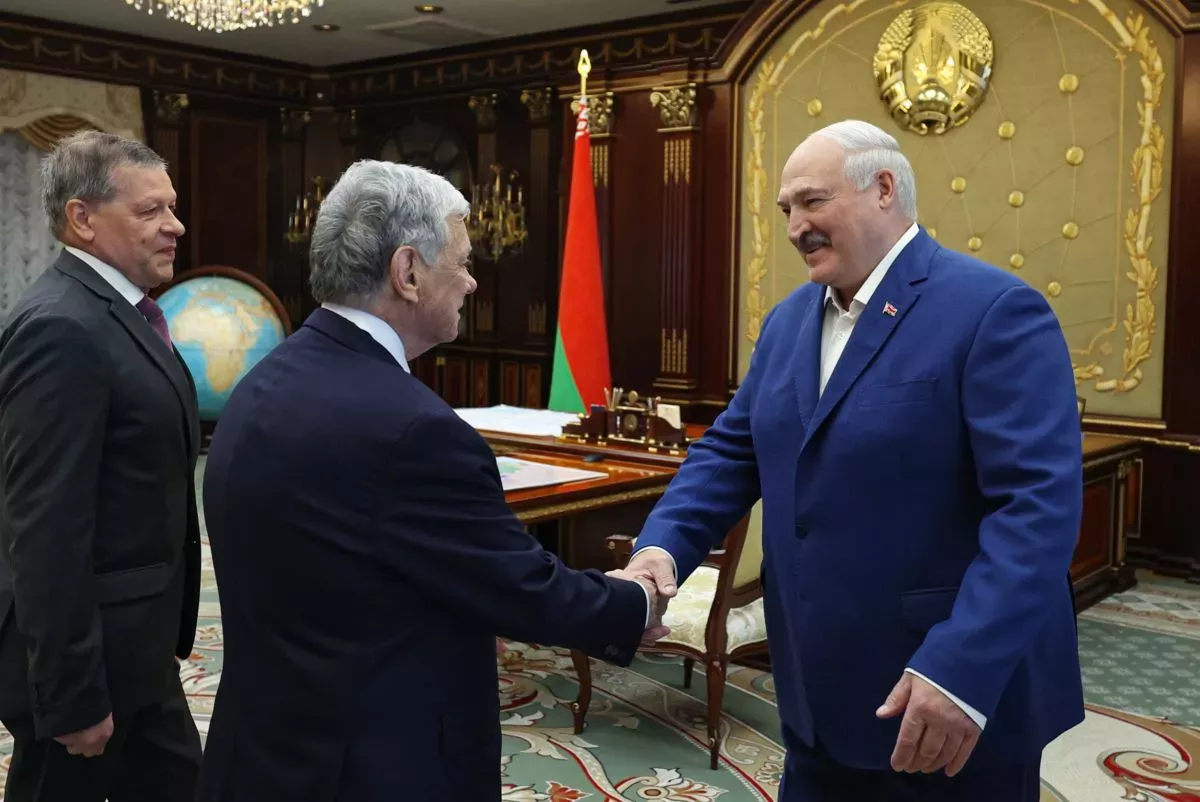
It seems that improving relations with Belarus is a long-term course for Donald Trump’s administration.
On September 15, an event took place that until quite recently might have seemed sensational. At the training ground near Barysaw (the 72nd Guards Joint Training Centre), where the Zapad-2025 exercises were underway, American military observers arrived—U.S. Air Force Lieutenant Colonel Bryan Shoupe and another unnamed officer.
Belarusian Defence Minister Viktor Khrenin personally shook their hands, and the American officers thanked him in Russian. The Belarusian defence minister then told the U.S. servicemen: “We will show whatever is of interest for you. Whatever you want. You can go there and see, talk to people.”
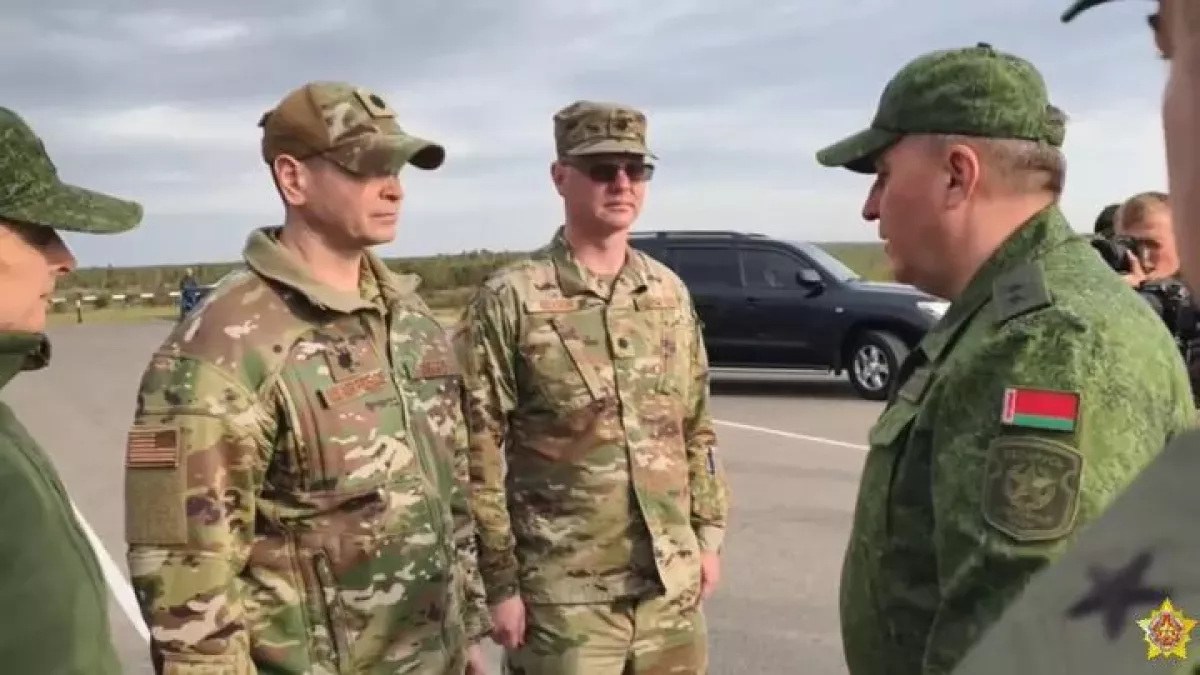
Also present at the drills were observers from NATO member states such as Türkiye and Hungary. In addition, military-diplomatic representatives from Azerbaijan, Vietnam, Iran, Kazakhstan, China, Cuba, Russia, Serbia, Sudan, Turkmenistan, Zambia, Zimbabwe, Peru, and Indonesia attended the exercises.
Donald Trump’s softer stance toward Belarus stands in stark contrast to the policies of the EU and most NATO countries—something Belarusian diplomacy has already highlighted. After the authorities of Poland and Latvia imposed restrictions on air traffic near the Belarusian border, the Belarusian Foreign Ministry issued a special statement. It noted in particular: “These discriminatory measures look especially absurd against the backdrop of the United States lifting previously imposed sanctions on the Belarusian airline Belavia.”
Why NATO is turning Belarus into a “frontline zone”
For many years, relations between Belarus and most EU and NATO countries have been marked by serious tension, which sharply escalated after the events of 2020–2022. Yet there were a number of European countries that, despite rhetoric about “human rights violations” in Belarus, maintained relatively good relations with Minsk in the past. Among them were Germany, Sweden, the Czech Republic, Poland, and the Baltic states. Today, however, all of that belongs to the past.
Poland has taken an especially militant stance toward Belarus. At the end of August, European Commission President Ursula von der Leyen paid a visit to Poland and Lithuania.
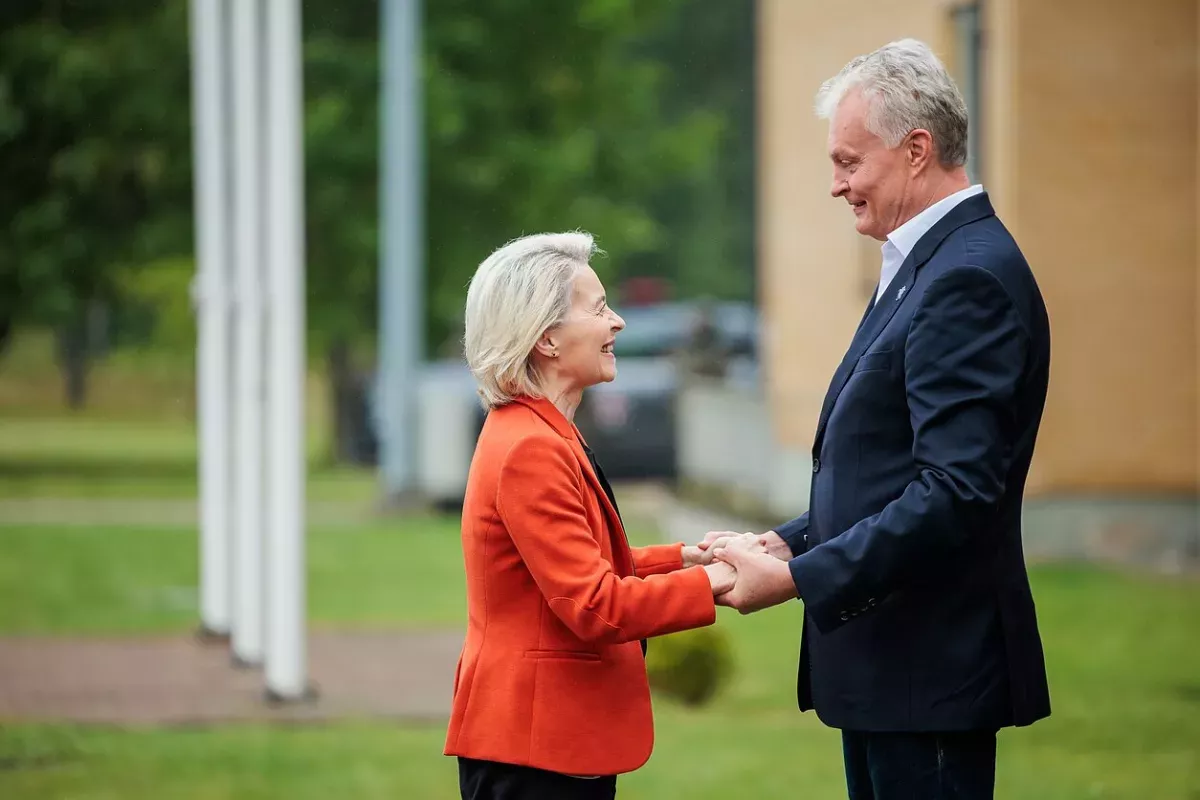
At the meeting, new stark warnings were voiced about “Belarusian border guards armed with long-barrel weapons” and the so-called “frontline zones” that allegedly exist in territories bordering Belarus.
Earlier in September, a Belarusian diplomat was expelled from Warsaw. Almost simultaneously, a staff member of the Belarusian embassy in the Czech Republic was declared persona non grata. The latest unfriendly act came on September 12, when Warsaw closed the Polish-Belarusian border. The formal pretext was longstanding, unfounded accusations of supposed “aggression” by Belarus.
According to the Belarusian Foreign Ministry, roughly 400,000 tons of goods were transported from Belarus to Poland in the past month. However, Belarusian products constituted only a tiny fraction. Only about 1 million dollars’ worth of Belarusian goods crossed this border out of roughly 100 billion dollars in total Belarusian exports, or 0.001%.
This minuscule volume is not due to Belarus lacking economically competitive goods for EU markets, but primarily because of Western-imposed sanctions. Today, a third of the cargo passing through the Belarus-Poland border consists of Chinese goods. In addition, goods from Kazakhstan, Russia, Uzbekistan, Japan, and South Korea transit through Belarus, with up to 50% of this cargo destined for Poland itself. In the reverse direction, products from Germany, Italy, France, and the Netherlands also pass through Belarus.
Therefore, the Belarusian Foreign Minister asserted that the border closure by Polish authorities has little impact on Belarus’s own economy but significantly affects the countries that relied on Belarusian transit.
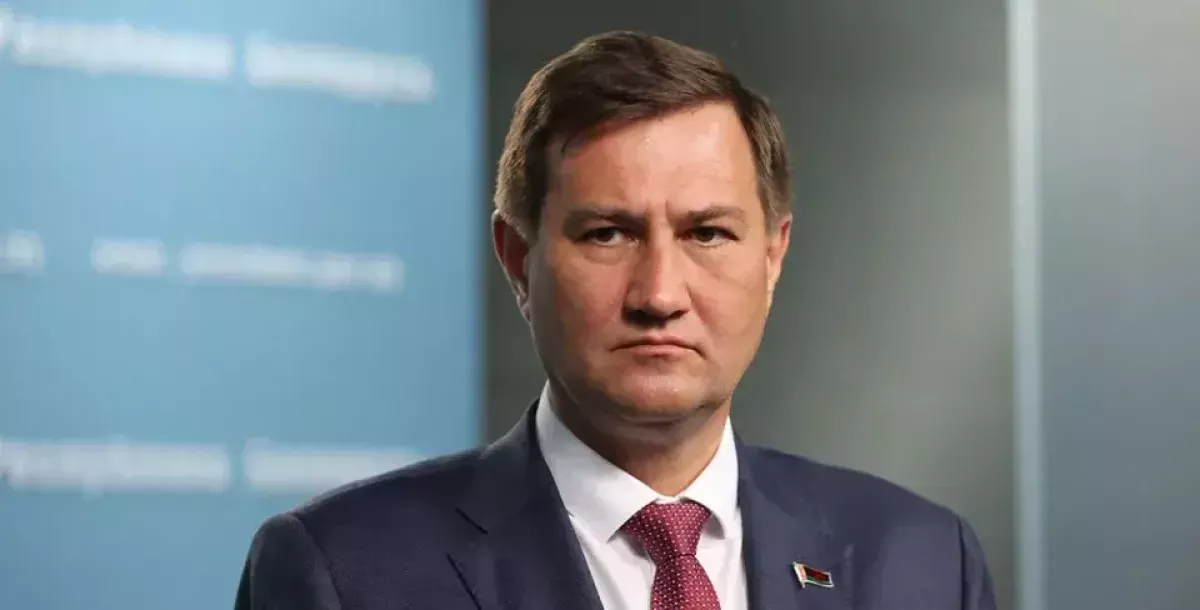
Belarusian Foreign Minister Maxim Ryzhenkov also commented: “This decision by Tusk—it harms Polish entrepreneurs and citizens as well. It harms the Polish economy… If Poland thought it was being clever by punishing Belarus with this decision, in reality, the opposite happened. They ended up punishing themselves, their partners, and some fairly strong countries in global politics that they will have to deal with in the future.”
Unlike Poland, Lithuania and Latvia have not fully closed their borders with Belarus, but the situation there is still difficult. Border crossings are now under the personal supervision of the Belarusian president. On September 15, Vladimir Orlovsky, Chairman of the State Customs Committee, reported to Alexander Lukashenko that the Lithuanian side was deliberately allowing far fewer trucks to pass than the agreements allow—no more than 100 trucks per day, whereas Belarus could process 500–600.
Belarusian border and customs services, by contrast, continue to operate normally, allowing traffic from neighbouring countries to pass without delays. Regarding the Polish direction, BELTA reports that Chairman Orlovsky said Belarusian border checkpoints could resume operations at any moment: “We have never refused dialogue and are ready for it at any time in any format.”
Belarusian President Alexander Lukashenko takes a realistic view of how relations with Poland are likely to develop in the near future. “To be honest, we do not harbour any illusions about a rapid resumption of dialogue,” BELTA quotes Lukashenko as saying. “Poles and Belarusians are not enemies. On the other hand, Warsaw continues to make unfounded claims and accusations against Belarus. It harbours our fugitives and politically and informationally supports them for its own purposes.”
The Belarusian leader also believes that U.S. President Donald Trump is right not to involve European politicians with tarnished reputations in current negotiations. Trump seeks authoritative leaders with whom he must engage on equal terms—primarily the leadership of SCO and BRICS countries.
A course toward building bridges
Belarus also has positive examples of relatively good relations with some other NATO member states.
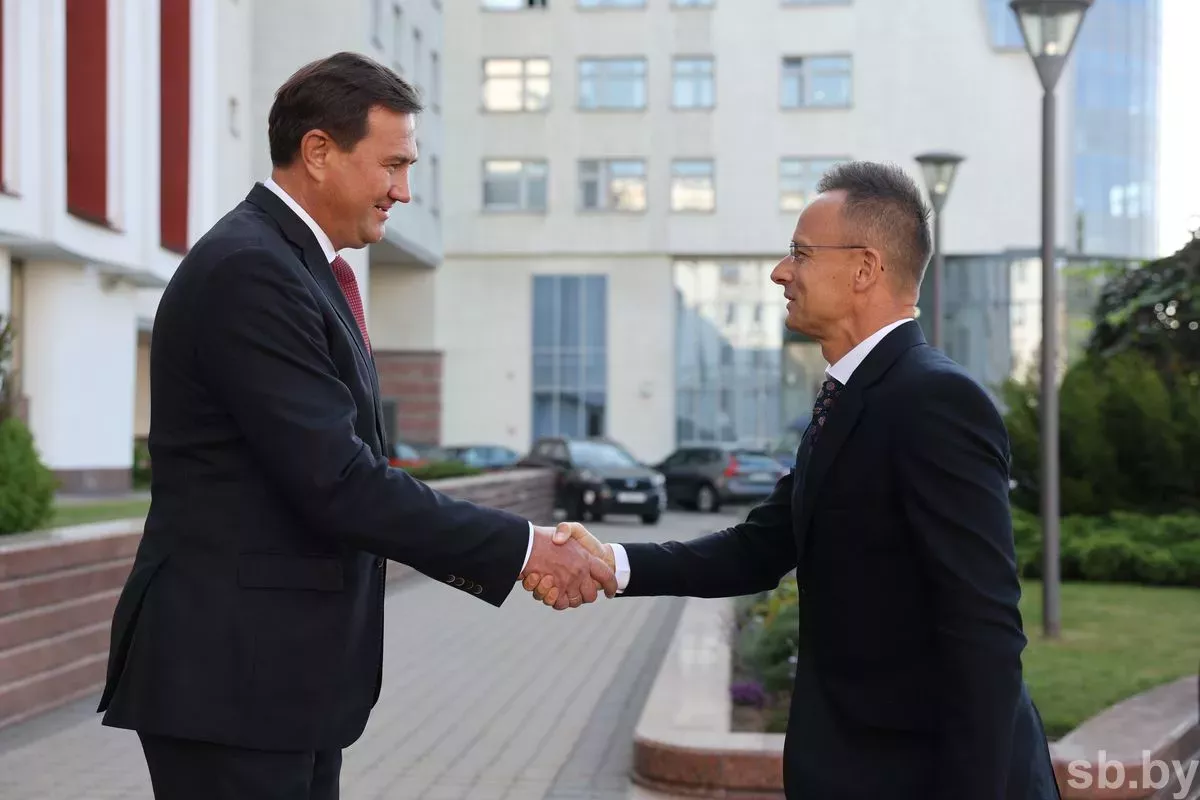
On September 10, Belarusian Foreign Minister Maxim Ryzhenkov met with Hungarian Foreign Minister Péter Szijjártó. Following the meeting, Ryzhenkov said: “We hope that the course pursued by Hungary today—not for destruction, but for creation and bridge-building—will eventually be adopted by other states as well.”
On the same day, the 13th session of the Belarus-Hungary Intergovernmental Commission and the Belarus-Hungary Business Forum took place.
Another NATO member state currently seeking to restore traditional friendly relations with Belarus is Slovakia.
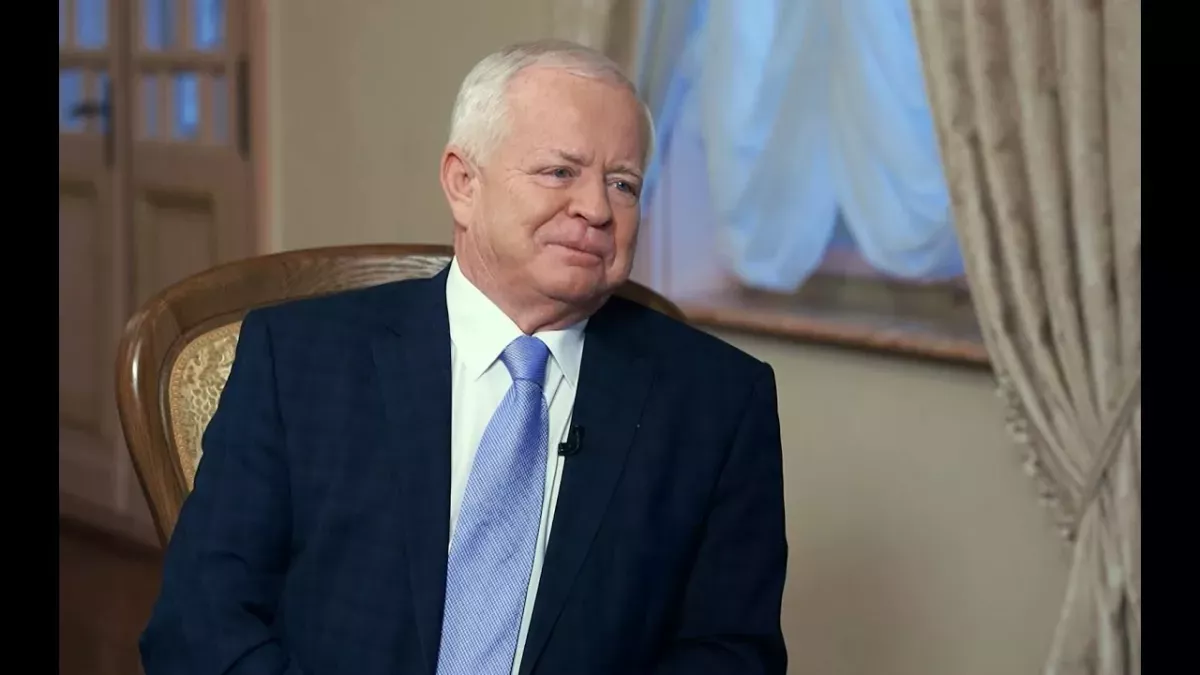
On September 11, before presenting his credentials to the President of Belarus, the Ambassador Extraordinary and Plenipotentiary of the Slovak Republic to Belarus, Jozef Migas, said: “It is very important that relations between Slovakia and Belarus return to the path of constructive cooperation… The current situation does not satisfy either the Belarusian or Slovak side.”
The new ambassador sees his mission as also including the restoration of normal trade flows between the two countries.
Positive relations are also developing between Belarus and Türkiye. Officially, a traditionally high level of cooperation between Ankara and Minsk is noted, and recently there has been a trend toward interaction at the regional level as well.
On August 25, Ambassador Anatoly Glaz met with Turkish Deputy Minister of Trade Mustafa Tuzcu. On August 28–29, he met with İzmir Governor Süleyman Elban and İzmir Mayor Cemil Tugay. A number of agreements were reached on cooperation between İzmir and Belarusian regions in the agro-industrial sector and emergency management. Additionally, the XII session of the Belarus-Türkiye Joint Intergovernmental Economic Commission is scheduled to take place in Minsk later this year.
On the geopolitical fault line
Unfortunately, most Western countries today are guided by entirely different priorities and pursue very risky policies. Not only the EU and NATO, but also other international organisations, such as the OSCE, have increasingly become platforms for issuing endless accusations against Belarus—effectively turning them into yet another tool of escalation.
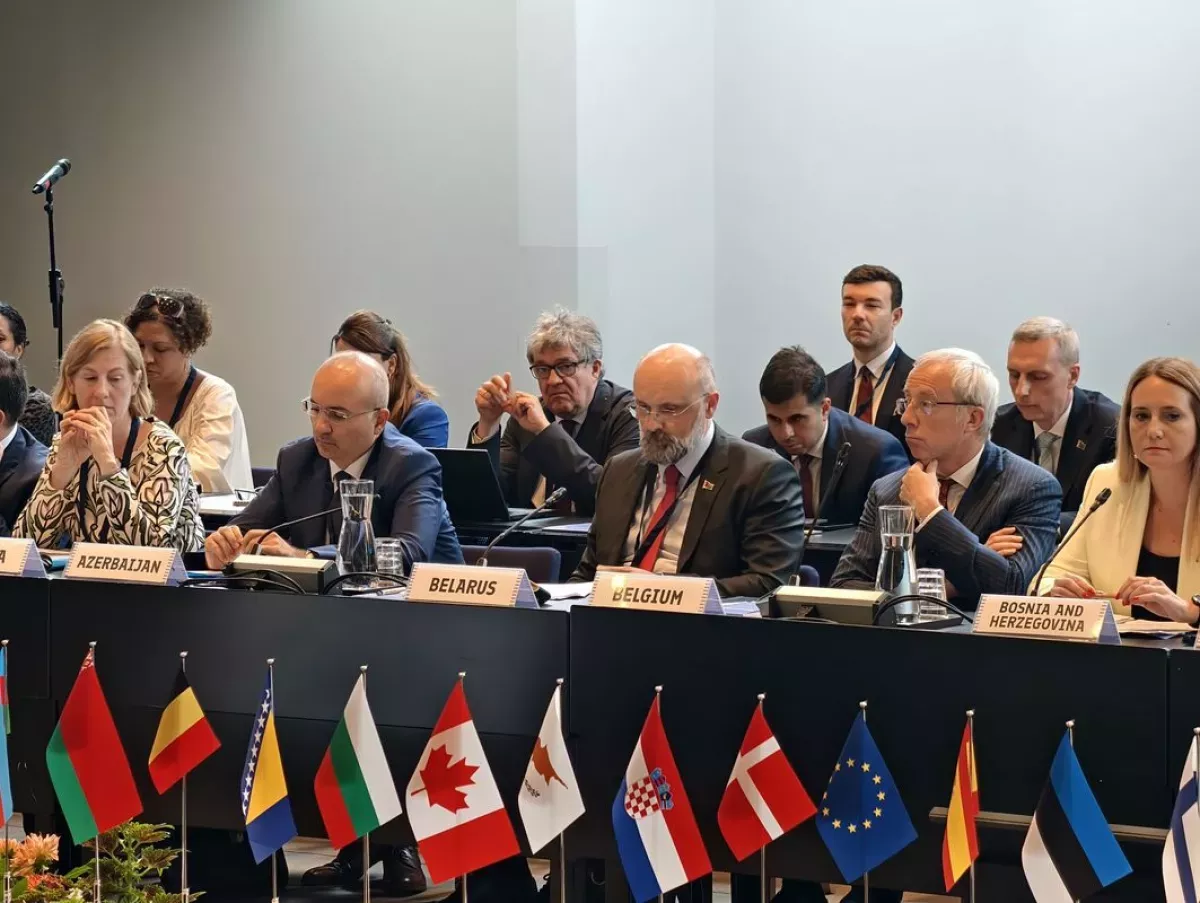
On August 1, a Belarusian delegation took part in a trade session of OSCE member states and civil society representatives in Helsinki, but heard nothing new. “Today, unfortunately, Europe is driven by a self-imposed prophecy of war. In the OSCE, we continue to speak a lot, but are barely listened to. If the maximum we are capable of is a tug-of-war of mutual accusations… we will achieve nothing. But if we can rise above ideological dogmas and prejudices, we can bring peace to Europe,” the Belarusian side said in an official statement.
At the same time, Belarus is ready to participate in dialogue anywhere and without any preconditions. Minsk does not limit itself to rhetoric; it also has concrete proposals. For example, it has suggested the traditional Minsk Conference on Eurasian Security, scheduled for October 28–29, as a platform to discuss mechanisms for reliable peace in Europe. Belarus, long positioned on the geopolitical fault line between East and West, is presented as the most suitable venue for such dialogue.
Whether this appeal will be heard in Brussels or Strasbourg remains a rhetorical question. Today, Minsk places greater hopes on improving relations with the United States and President Donald Trump, who has promised to achieve lasting peace in the region. The near future should reveal the first results of these promises and the corresponding efforts.








